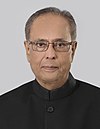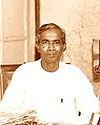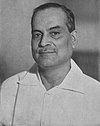
The Communist Party of India (Marxist) (abbreviated as CPI(M)) is a communist political party in India. It is the largest communist party in India in terms of membership and electoral seats, and one of the national parties of India. The party was founded through a splitting from the Communist Party of India in 1964 and it quickly became the dominant fraction.

The Communist Party of India (CPI) is the oldest communist party in India. The CPI was founded in modern-day Kanpur on 26 December 1925.
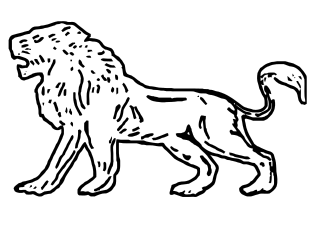
The All India Forward Bloc is a left-wing nationalist political party in India. It emerged as a faction within the Indian National Congress in 1939, led by Subhas Chandra Bose. The party re-established as an independent political party after the independence of India. It has its main stronghold in West Bengal. The party's current Secretary-General is G. Devarajan. Veteran Indian politicians Sarat Chandra Bose and Chitta Basu had been the stalwarts of the party in independent India.

The National Democratic Alliance (NDA) is a right-wing conservative Indian political alliance led by the right-wing Bharatiya Janata Party (BJP). It was founded in 1998 and currently controls the government of India as well as the government of 17 Indian states and one Union territory.
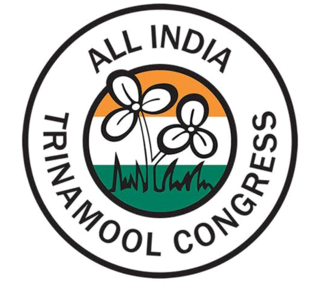
The All India Trinamool Congress is an Indian political party that is mainly influential in the state of West Bengal. It was founded by Mamata Banerjee on 1 January 1998 as a breakaway faction from the Indian National Congress and rapidly rose to prominence in the politics of West Bengal under her leadership. Presently, it is ruling the state of West Bengal beside being the third-largest party in India in terms of number of MPs just after the BJP and INC.
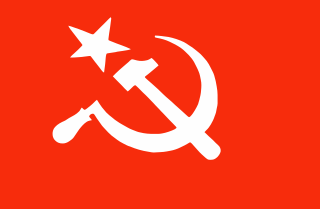
The Socialist Unity Centre of India (Communist) or SUCI(C) is an anti-revisionist Marxist-Leninist communist party in India. The party was founded by Shibdas Ghosh, Nihar Mukherjee and others in 1948.
Secular Democratic Alliance or Left-Congress Alliance is a political alliance formed ahead of the 2024 Indian general election in West Bengal by the Communist Party of India (Marxist) and the Indian National Congress in opposition to the Trinamool Congress and the Bharatiya Janata Party.
Communism in India has existed as a social or political ideology as well as a political movement since at least as early as the 1920s. In its early years, communist ideology was harshly suppressed through legal prohibitions and criminal prosecutions. Eventually, communist parties became ensconced in national party politics, sprouting several political offshoots.
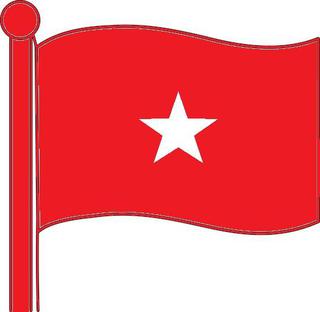
The Bolshevik Party of India is an Indian political party in India. The party was founded in 1939. The party had a certain role in the trade union movement in West Bengal and was briefly represented in the state government in 1969. In later years the party has played a negligible role in Indian politics.

Mausam Benazir Noor is an Indian politician serving as Member of Parliament, Rajya Sabha from West Bengal and Vice Chairperson of West Bengal Commission for Women. She has served as President of Malda district TMC. She has also served as a Member of Lok Sabha for Maldaha Uttar from 2009 until 2019.

The Telangana Pradesh Congress Committee or (TPCC) is the state unit of the Indian National Congress (INC) in the state of Telangana, India. It is responsible for organizing and coordinating the party's activities and campaigns within the state, as well as selecting candidates for local, state, and national elections. The current president of the Telangana PCC is Anumula Revanth Reddy. The committee has a long history of political influence in the united Andhra Pradesh state, however, it has faced challenges in recent years, including a decline in electoral support, particularly after the formation of Telangana as a separate state in 2014.

Legislative Assembly election was held in 2016 for the 294 seats of the Vidhan Sabha in the state of West Bengal in India. The All India Trinamool Congress under Mamata Banerjee won 211 seats, and thus was reelected with an enhanced majority. Like in the 2011 election, the poll was held in six phases, with the first phase divided into two days. The first phase was held in Naxalite-Maoist affected Red corridor areas with two polling dates: 4 April and 11 April. The other phases were held on 17, 21, 25, 30 April and 5 May. The result of the election was declared on 19 May.
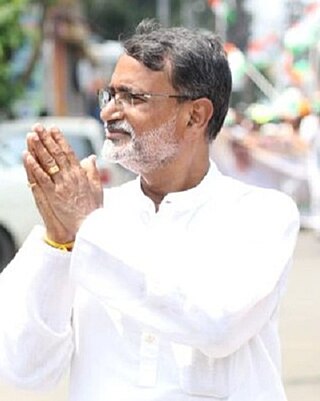
Ashish Kumar Saha is an Indian politician from Tripura, India. He is currently serving as President of Tripura Pradesh Congress Committee.

Legislative Assembly elections were held in the Indian state of West Bengal in 1982. The Left Front, which had won the 1977 West Bengal Legislative Assembly election, emerged victoriously. The Indian National Congress emerged as the main opposition party in the state, as the Janata Party was disintegrating.

Legislative Assembly elections were held in the Indian state of West Bengal in 1991. The election took place simultaneously with the 1991 Indian general election. The term of the assembly elected in 1987 lasted until February 1992, but the West Bengal government asked the Election Commission of India to arrange the election at an earlier date.

The 2019 Indian general election were held in India between April and May 2019 to constitute the 17th Lok Sabha.

The 2021 West Bengal Legislative Assembly election was the 17th quinquennial legislative election held in West Bengal, to elect all 294 members of West Bengal Legislative Assembly. This electoral process of 292 seats unfolded between 27 March to 29 April 2021, taking place in eight phases. Voting for the two remaining constituencies was delayed to 30 September 2021.

Bharatiya Janata Party, West Bengal(Hindi: भारतीय जनता पार्टी, पश्चिम बंगाल), is the state unit of the Bharatiya Janata Party in the Indian state of West Bengal. The party's headquarters is located in Kolkata, the capital of the state. Sukanta Majumdar is currently appointed as the president of BJP West Bengal.

In 1964, a major split occurred in the Communist Party of India. The split was the culmination of decades of tensions and factional infighting. When India became independent in 1947, differences arose of how to adapt to the new situation. As relations between the Nehru government and the Soviet Union improved, a faction that sought cooperation with the dominant Indian National Congress emerged within CPI. This tendency was led by S.A. Dange, whose role in the party hierarchy became increasingly controversial. When the Sino-Indian War broke out in 1962 Dange's opponents within CPI were jailed, but when they were released they sought to challenge his leadership. In 1964 the party was finally divided into two, with the left faction forming the Communist Party of India (Marxist). The split had a lot of regional variations. It also impacted other organizations, such as trade union and peasant movements. The split has been studied extensively by scholars, who have sought to analyze the various domestic and international factors involved.

The Indian National Developmental Inclusive Alliance (INDIA) is a big tent multi party political alliance of several political parties in India led by India's largest opposition party the Indian National Congress. The alliance is in opposition to the ruling National Democratic Alliance government led by the Bharatiya Janata Party (BJP) in the 2024 Indian general elections.




